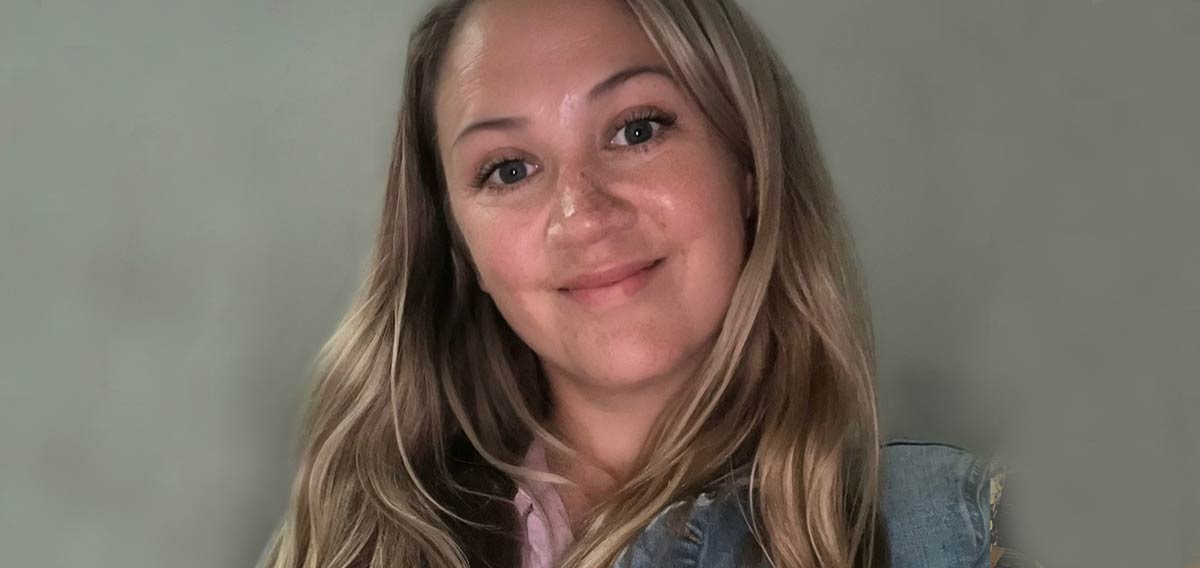Intuitive Counseling has welcomed a new psychotherapist, Amanda Mullen, to our team of clinicians. Amanda will be working virtually and in-person from the Charleston, South Carolina office. Amanda has a clinical focus on trauma, PTSD, mood disorders, relationship struggles, co-dependency, anxiety disorders, and identity development.
As a veteran herself, Amanda has a deep appreciation for the unique experiences of military service members, their families, and first responders. I am especially passionate about supporting veterans, veteran spouses, and first responders through their mental health journeys.
Amanda is currently working towards her certification as a Clinical Trauma Professional (CCTP).
To read more about Amanda, please find her full bio here. Amanda currently has openings days and evenings and is in-network with Blue Cross Blue Shield PPO.
To help you find a psychotherapist, we invite you to learn more about Amanda’s training and experience in this interview.
One question I get asked often is: Why social work? What made me choose this path, and what keeps me going?
At first, it was frustration — frustration with seeing the system fail so many people I cared about: friends, family, even coworkers. I was tired of watching people slip through the cracks, and I wanted to do something about it.
But as I grew into the role, my reasons evolved. I discovered that what really drives me is the opportunity to be a safe space for someone when they’re going through the worst moments of their life. There’s something incredibly powerful about being that steady presence when someone feels like their world is falling apart.
What keeps me motivated is knowing I can help people start putting the pieces back together — not all at once, but step by step. Seeing that progress, no matter how small, reminds me why this work matters.
Why is mental health so important?
Mental health is important in society because it affects every part of life — from how we think, feel, and act, to how we handle stress, build relationships, and make decisions. When mental health is neglected, the impact doesn’t just stay with the individual — it ripples out into families, workplaces, schools, and entire communities.
Is there a particular style you bring to therapy?
As a psychotherapist, I bring an integrative and client-centered approach to therapy, drawing from a range of evidence-based modalities to best support each individual’s unique needs. My work is grounded in Cognitive Behavioral Therapy (CBT), particularly for individuals navigating PTSD, helping clients understand and reframe trauma-related thoughts and behaviors. I also incorporate elements of Dialectical Behavior Therapy (DBT) to support emotional regulation, distress tolerance, and interpersonal effectiveness. Motivational Interviewing (MI) plays a key role in enhancing client readiness for change, especially when addressing ambivalence. Additionally, I integrate psychodynamic principles to explore underlying patterns, past experiences, and unconscious processes that influence current behavior. This blended approach allows me to meet clients where they are, while fostering insight, healing, and sustainable growth.
What should someone look for when seeking a psychotherapist?
When someone is seeking a psychotherapist, it’s important to find more than just a licensed professional — it’s about finding the right fit for your unique needs and goals. Things such as credentials, experience, therapeutic approach, cultural competency, comfort, connection, practical factors, ethical and professional boundaries.
How do I measure progress in therapy with clients?
Measuring progress in therapy is both an art and a science — it involves combining clinical tools with personal insight, ongoing reflection, and collaboration with a client. Progress can be measured by collaborative goal setting, evidence-based assessments, behavioral and functional changes, client self-report and other ways.
How do I balance listening with offering guidance and feedback?
Balancing listening with offering guidance and feedback is one of the most essential — and nuanced — skills in social work. The goal is to support clients in a way that’s empowering, not directive, while also providing structure, insight, and tools when needed. Here’s how to strike that balance:
-active listening, use the clients goals to guide feedback, embrace the “guide on the side” role, skills-based guidance when appropriate, and listen regularly.
Think of the balance like a dance — sometimes you lead, sometimes you follow. Listening builds the relationship; feedback supports growth. Done thoughtfully, both are acts of care.
If I could go to dinner with one person, dead or alive, who would it be?

If I could go to dinner with anyone, dead or alive, I’d choose Elvis Presley. Beyond being the King of Rock ‘n’ Roll, Elvis was a cultural icon whose music bridged gaps between genres, generations, and even racial lines — though not without controversy. I’d want to talk to him about what it was like navigating fame, pressure, and identity at such a young age. Not to mention, he was my grandmother’s forever crush. She would be so jealous to hear the wonderful experience I would have with him. I’d also be curious to hear his personal thoughts on the highs and lows of his career — not just the music, but the mental health struggles, the isolation, and what it was like to carry the weight of being a global symbol. There’s a human side to him that often gets overshadowed by the legend

